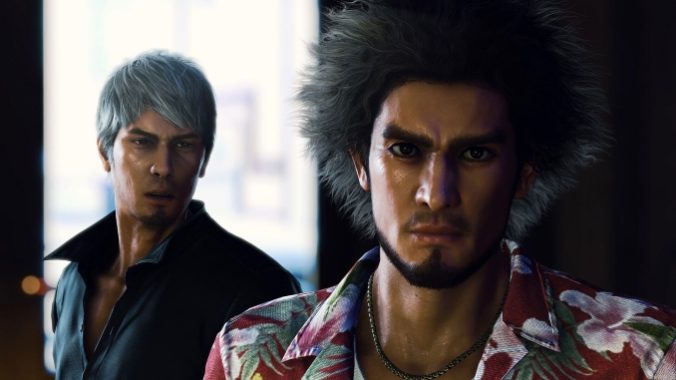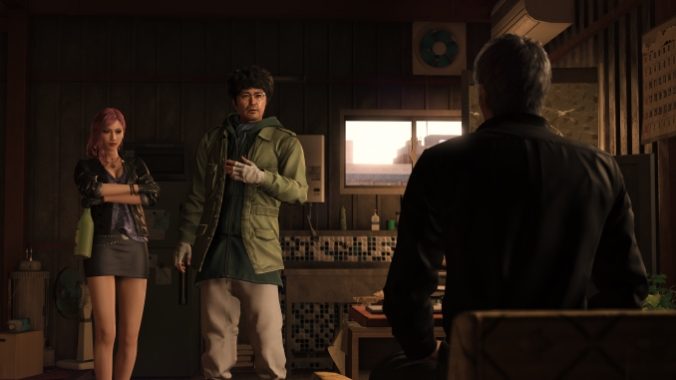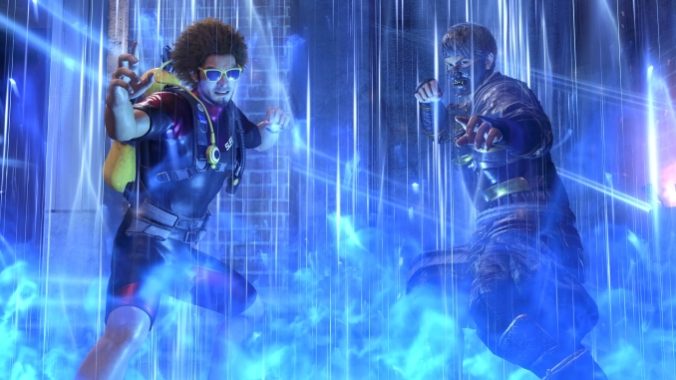Like A Dragon: Infinite Wealth Stumbles Through Paradise

I likely don’t need to say it, but Like A Dragon: Infinite Wealth is a massively ambitious game. It’s a sprawling RPG, complete with a job system, loot, randomized dungeons, relationship mechanics, well-developed characters and banter, side quests and activities, and then some. Most of that ambition pays off, translating into a crowd-pleasing RPG set against RGG Studio’s own idea of a grand world-saving adventure, all the while paying its respects to and sending off one of gaming’s most well-rounded characters, Kazuma Kiryu, across a split narrative on opposite sides of the Pacific Ocean. If Yakuza: Like A Dragon was an approximate toe in the water, Infinite Wealth is a cannonball into the deep end. It takes Kiryu and Kasuga on an odyssey punctuated by moments both heart-wrenching and rending. It reminded me time and time again why players have continuously come back to the former and been effortlessly charmed by the latter. Regrettably, these are moments in an uneven tale that sometimes wastes its characters on threads that feel half-baked, and importantly buckles under the weight of its bloat just as it really needs to bring these tangents back to roost. Despite these hitches, Infinite Wealth more than channels the vibrancy and goodness of the esteemed series as it charts the choppy waters of something and somewhere new.
Let’s do some setup first, eh? Infinite Wealth builds off of both the ends of the parallel titles, Yakuza: Like A Dragon and Like A Dragon Gaiden: The Man Who Erased His Name. The ends of those intersecting games saw the dissolution of two of the major yakuza clans in Japan, the Omi Alliance and the Tojo Clan. The idea behind the dissolution is to reform the yakuza, whose way of life has crumbled over decades of policy against them, and reintegrate into civilized Japanese society as seamlessly as possible. For reasons that you’ll all have to see for yourselves, the plan fails. When things pick back up in Infinite Wealth, Kasuga is doing his best as a contractor at Hello Work to make an honest living and uphold his promise to his now dead ex-patriarch and father figure—not to mention his potential actual father—Masumi Arakawa, and help these ex-yakuza find employment. Because he’s Kasuga, a man who radiates kindness and loyalty above all else, he’s taken it upon himself to help every single one that he can until his proverbial mission is actually complete. His allies have all found a way to settle down in the time since the end of Yakuza: Like A Dragon and he’s happily consigned himself to this cause that could see him to the very end of his days when life predictably goes sideways for them all. In the maelstrom, an opportunity presents itself to Kasuga: go to Hawaii and meet his mother, or at the very least the woman who loved his boss and potential father.
Kasuga’s journey to Hawaii finds him in the orbit of almost too many elements. He’s almost immediately the victim of attempted robbery, breaks into half a dozen street fights while being shown around by a new friend, makes an enemy of an ex-pat yakuza, and is eventually detained by the corrupt police after being unceremoniously dumped butt naked on a beach. You might think I’m giving far too much of the game away, but I cannot stress enough how expansive the foundation of this game is. This is merely the first few chapters of the game; I didn’t feel I could take a beat and do my own thing free of exposition until about the sixth chapter, at which point the game loosens up and lets you get to its dearth of experiences. If my save files could tell a story, the jump in my hour count between these middle chapters would sing of how freeing it was to be able to finally crawl out from underneath the sheer number of things Infinite Wealth tries to juggle.
As always, it’s admirable to see what the series finds worthy of expounding on. Yakuza: Like A Dragon was quite notable for how heavily it delved into the homeless crisis in Japan, and it’s a thread that Infinite Wealth picks up as RGG Studio dismantles the notion of Hawaii as a “paradise.” To paraphrase a character in the game, Hawaii is more aptly painted as the center of waves of unwanted “shit” other countries flush from their system. The homeless are often poor unhoused Americans rounded up and shipped off there, and the locals can’t or won’t do much for them. The economy is rooted in the exploitation of the island and displacement of its indigenous people. Kasuga and his friends often come up against a language and cultural barrier during their time in Hawaii, and the game makes a point to suggest that sometimes there are punitive forces more willing to push back on you rather than help you overcome it. A faith-based organization is seemingly at the center of a slew of mysteries and unbecoming activities on the island, putting them in the same conversations as the yakuza, police, and governing bodies of previous games. Back in Japan, the efficacy and definition of justice as we know it is called into question, and the game takes aim at not only formal structures and institutions that claim to dole it out, but also the informal attitudes and forms that “justice” has taken on in the age of the internet. Kiryu is personally making amends for the life he’s led as he comes to terms with his terminal cancer and wonders aloud if a person who’s done bad things is worthy of companionship, camaraderie, love, and a legacy the likes of his. Infinite Wealth is preoccupied with a lot.

Due to the nature of a game this big, it’s impossible to fully wrestle with these ideas and plenty others that come up in the smaller arcs of the game, whether that be the banter your party idly makes while exploring town, the deeper bonds you forge over drinks, or the stories that you simply happen across in the world. Nor do I think the game necessarily owes perfectly succinct messages about them all. It’s tricky enough to take aim at a single one of those big notions, let alone all of them. But Infinite Wealth‘s unsatisfying resolve to more fully address some of them, and the outright abandonment of others as the more ludicrous A-plot takes up more and more real estate, does make their inclusion feel like little other than set dressing. Its greater and far more obvious sin is that by the end of the game, at least half of the plot feels like RGG was kind of just spinning the wheels on something that never satisfyingly goes any place meaningful. While a lot of characters introduced in the Hawaii arc of the game become fleshed out characters I’d die for, Kasuga and his respective antagonists are—both interestingly and disappointingly—the least impactful part of it all. I’d go so far as to say Kasuga is reduced to a caricature of himself for the sake of the story, and found myself really let down by how his motivations were spun out far beyond the initial scope of things to fit a narrative that takes a huge swing and I don’t feel entirely connects. One of his major foes is little other than a trope brazenly tossed into the mix and made into a great deal seemingly because the writers needed something to be the glue to hold the massive narratives together. In all honesty, Infinite Wealth screams of a game that could’ve been broken up into at least two smaller, and consequently more focused, titles ala last fall’s Like A Dragon Gaiden.
While Kasuga has a disappointing turn, his supporting cast largely makes up for things. Infinite Wealth has a frankly enormous cast of new and returning characters, and its freshmen are some of the brightest points of the whole game. Eric Tomizawa and Chitose Fujinomiya in particular are such strong foils to Kasuga and his bright-eyed optimism and ground the game and him when things get a bit too fanciful. Both have a meaner streak to them, informed by their own interactions with the criminal underground and tragic histories. They resemble Kiryu’s hardened nature more than they do Kasuga, but they also benefit from the latter’s warmth and light touch in the long run, personifying the balance I wish he himself displayed at times. Yutaka Yamai, the patriarch of a Hawaiian yakuza family, began the game in rough standing with me before ultimately winning me over by the end. Even characters like Dwight, a larger than life leader of a gang known as the Barracudas played by none other than Danny Trejo, play their bit well. Returning characters like Seonhee and Nanba really underscore how much the series has come to rely on its expansive cast to foster this sense of found family, and I’m glad the series’ change to a party-based RPG has been able to stick these characters together as well as front and center where they shine best.
